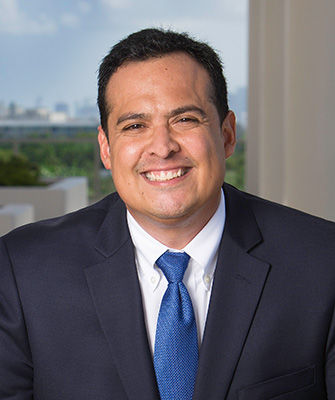Oftentimes when we call a thing someone’s “property,” we do so to invoke a very specific picture of the owner’s rights to that thing. To call something “property” often entails significant limits to what one can do to regulate the thing. The Due Process Clause and Takings Clause both enter the picture. Even outside of legal discourse, the term “property” has a rhetorical power that brings to mind what Blackstone called the “sole and despotic dominion” one can exercise over the thing. That is why “[m]ine is often one of the first words toddlers learn.” To quote an old American Express commercial, ownership, like membership, “has its privileges.”
So one would think that conceptualizing a thing as “property” would have an important effect on how we think about the thing. But what if it doesn’t? What if it actually leads to inconsistent, irreconcilable views in different contexts? What if it turns out that thinking about something as “property” does not provide much analytic clarity at all?
This is the bold thesis of J. Maria Glover’s A Regulatory Theory of Legal Claims, where Glover takes on longstanding debates about the conceptual status of the legal claim. Civil procedure scholars continue to debate whether the legal claim is a party’s “property,” as opposed to an aspect of procedure that is subject to the discretionary regulation of the court. Glover’s goal is not to resolve the debate but to dissolve it, as a debate that does not have the significance that the debaters give it.
Her technique is quite clever. She examines the state of the debate in different procedural contexts to show that conceptualizing the claim as property can lead to different, often inconsistent views depending on the context.
Take, for example, the class action context. The class action has often been criticized because it takes away a class member’s control over her claim, and thus takes away an important stick in the property rights bundle. In fact, a class attorney can sell the class member’s property in a settlement without the class members’ consent. For that reason, courts and scholars have been wary of certifying class actions in many contexts. Consider, for example, Justice Scalia’s throwaway line in Wal-Mart Stores, Inc. v. Dukes, that class actions for injunctive relief “rightly or wrongly” do not require notice of the class action for the class members or provide an opportunity for the class members to opt out.
But if the class action can be understood as a “taking” of the party’s control over her claim, then a party should obviously have the power to sell the claim to whomever he or she wants. Not so fast. For example, recently there has been a rise in “alternative litigation finance,” understood as attempts to finance litigation by selling shares in a claim’s recovery. At the same time, there has been a rise in lobbying efforts to change the laws of champerty and maintenance, which prohibit such claim selling. One would think that, given the paternalistic bent of the class action, plaintiffs’ attorneys would work hard to preserve champerty and maintenance laws to protect the naïve interests of the claimholders. Similarly, one would think that the defendants’ bar, as champions of the property rights of the claimholders, would push for greater opportunities to sell claims. But the opposite is true, as Glover points out – plaintiffs’ attorneys love litigation finance and the defense bar hates it.
Glover’s point is not to identify hypocrisy in the debate over the status of the claim. Her point is to question the very debate itself. As property scholars have long understood, property rights in a thing are never absolute and are frequently regulated depending on the objectives of the law. I may own the land where my residence is located, but I may have to grant an easement to allow public access to the beach. Consequently, calling something “property” does not negate the ability of courts and legislators to restrict an owner’s use of it.
Glover seeks to import that property-law insight into procedure, not by settling whether the claim is property, but by looking at the objectives of the claim. Moving in a more functionalist direction, Glover argues that the extent of a claimholder’s control rights over her claim depends on the objectives that litigation of the claim is meant to achieve. As I have argued in my own work, if protecting control rights in a claim can lead to worse compensation and deterrence in certain contexts, we should not protect them. But if protecting control rights would help (or at least not impede) underlying substantive rights, then, by all means, protect those rights. These positions are not inconsistent because they are unified by the same objective of property law in general—that the regulation of one’s control over a thing should depend on what the law, and by extension society, wants to achieve.
This is why Glover calls her theory a “regulatory” theory of the claim, and in the latter part of the article Glover discusses the implications of taking this approach to contexts such as Rule 68 offers of judgment, alternative litigation finance, and, finally, the class action. Indeed, one important takeaway of the article is that courts are empowered to regulate claims consistent with substantive goals and institutional constraints.
Glover’s article makes her point in a very persuasive and fun way. Because it is theoretical, it differs somewhat from the articles that I have liked lots in the past. But it does share with those prior articles a sensitivity to how procedure works on the ground. Glover does not talk about theory for theory’s sake, but really looks at the practical implications of theory, bringing such abstractions down to earth. For that reason, Glover makes a significant contribution to the literature.








